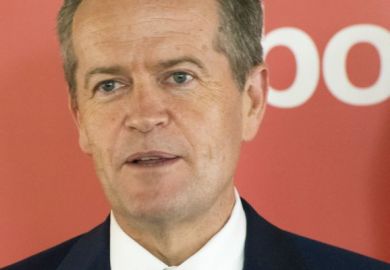Source: www.dur.ac.uk
The vice-chancellor of Durham University announced his retirement soon after a vote by the university’s senate over whether to reduce his powers, Times Higher Education understands.
Last week, Durham announced that Chris Higgins would relinquish his responsibilities at the end of September this year.
The previous week, the university’s senate debated proposals contained in a draft of a major review into how Durham is governed, sources have told THE.
At the meeting – where it is thought that members of the university executive were excluded from the discussion – senate debated whether to take forward a plan that would allow it to elect its own chair, rather than having this position automatically filled by the vice-chancellor.
The results of the vote on whether to strip Professor Higgins of his chairmanship came in at the beginning of the following week. The proposal was rejected, but only by a very narrow margin, it is understood.
A member of the senate who attended the debate, speaking on condition of anonymity, said the body was “explicit” that the vote was not intended to be about whether there was confidence in the vice-chancellor. But he also said that “senate was interested in a change of direction and focus” and that, in such a “climate”, the vote “took on a different sense”.
On 4 March, it is understood, Durham’s governing council held an extraordinary meeting. That night, THE was informed by a source with knowledge of the university that Professor Higgins was to leave his position.
The following morning, a Durham spokeswoman had no knowledge of such developments when asked by THE. But at lunchtime, the university released a statement announcing Professor Higgins’ retirement, which stressed that the decision had been under consideration for “some months”.
Professor Higgins wrote that “it has long been my intention to retire by 60”, an age he will reach in June 2015. “Announcing my plans now enables a search to begin to recruit my successor and frees me to begin to pursue post-Durham opportunities,” he said.
In a statement released simultaneously, Robert Gillespie, chair of Durham’s council, said that the search for Professor Higgins’ successor would begin “immediately” and that Ray Hudson, the deputy vice-chancellor, would take over as acting vice-chancellor “in the event that the recruitment process has not been completed by 1 October 2014”.
Discussions about a major review of governance began in July 2012, according to Durham’s council minutes, the month after the departure of Carolyn Fowler as registrar.
In November 2012, THE revealed that although it was unclear exactly why Ms Fowler had left her position, she was part of a larger controversy at the top of the university over the acceptance in 2010 of a £125,000 gift from British American Tobacco.
In accepting the gift, the university overruled its ethics committee and communications office, and tried to keep the donation under wraps, setting in motion a tussle over ethics and conflicts of interest in Durham’s upper echelons.
Professor Higgins’ retirement announcement has also come amid anger over plans to centralise elements of Durham’s collegiate system, which college heads and student representatives fear would in effect turn them into halls of residence.
A spokesman for Durham said that he had nothing to add on Professor Higgins’ departure beyond the public statements released last week.
Register to continue
Why register?
- Registration is free and only takes a moment
- Once registered, you can read 3 articles a month
- Sign up for our newsletter
Subscribe
Or subscribe for unlimited access to:
- Unlimited access to news, views, insights & reviews
- Digital editions
- Digital access to THE’s university and college rankings analysis
Already registered or a current subscriber? Login





